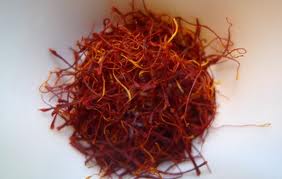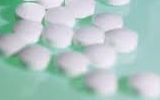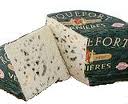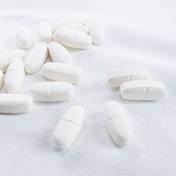Tag Archives: inflammation
Roquefort cheese may protect the heart, says new study
Vitamin D protects joints from arthritic inflammation, says new report
Los Angeles: The miracle of Vitamin D’s protection to the body continues – scientists have now found that it also helps prevent inflammation in joints.

Persian saffron may hold cure for multiple sclerosis
Toronto: Researchers have found that a substance in Persian saffron may hold the key to reducing nerve inflammation in sufferers of multiple sclerosis.

Selenium deficiency link to diseases of ageing
INFLAMMATION & AGEING
ARTHRITIS
Monica Reinagel – nutrionist and best-selling author

Monica Reinagel is author of The Inflammation Free Diet Plan. You can write to her at monica@inflammationfreediet.com
Find out how to manage your stress with expert help

London: From full inboxes and bleeping blackberries to lengthy commutes and automated messages, modern technology in the 21st Century doesn’t always make life easier. We’re working longer hours, sleeping less than ever and with global markets creating competition beyond our borders, pressure at work has never been so stark.
With so much on our plate, it’s hardly surprising that stress levels are rising. The number of working days lost due to stress in 2006-07 is estimated to be 13.7 million according to the latest statistics from the Health and Safety Executive. That’s a significant rise on last year so what are we getting so wrong?
Wednesday 7th November is National Stress Awareness Day and in a working world that never sleeps, it’s important to ensure we don’t neglect ourselves.
A recent study conducted by Philip Stein TESLAR, in association with the International Stress Management Association and Goldsmiths the jeweller, examined 25 stressed out entrepreneurs eager to reduce the stress in their lives. The participants took part in a Heart Rate Variability (HRV) test with Dr. Nyjon Eccles, BSc PhD MBBS MRCP, at his Harley Street practice. Each participant was given a Philip Stein TESLAR watch – a watch that contains a special de-stressing technology. After 5 weeks of wearing the watch, the participants received a second HRV test to discover the effects.
Benefits of wearing the watch include a more restful night time sleep, a reduction in stress and jet lag, improved concentration, increased levels of energy and an overall improvement of wellbeing.
Joining us online to discuss the findings is participant, Andy Henderson, a Derivatives Trainer, RFU Referee and Actor, Dermot Dennehy, UK MD of Philip Stein TESLAR and Jane Thomas, Chair of the International Stress Management Association, who will also be offering some top tips on how to manage our stress levels.
Dermot Dennehy, Andy Henderson and Jane Thomas join us online at web chat on Wednesday 7th November at 9am (GMT) to help us unwind with some top stress-busting tips.
Other useful links: www.philipsteinteslar.com
International Stress Management Association www.nationalstressawarenessday.co.uk








